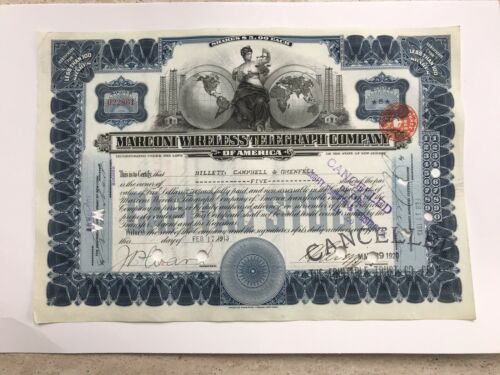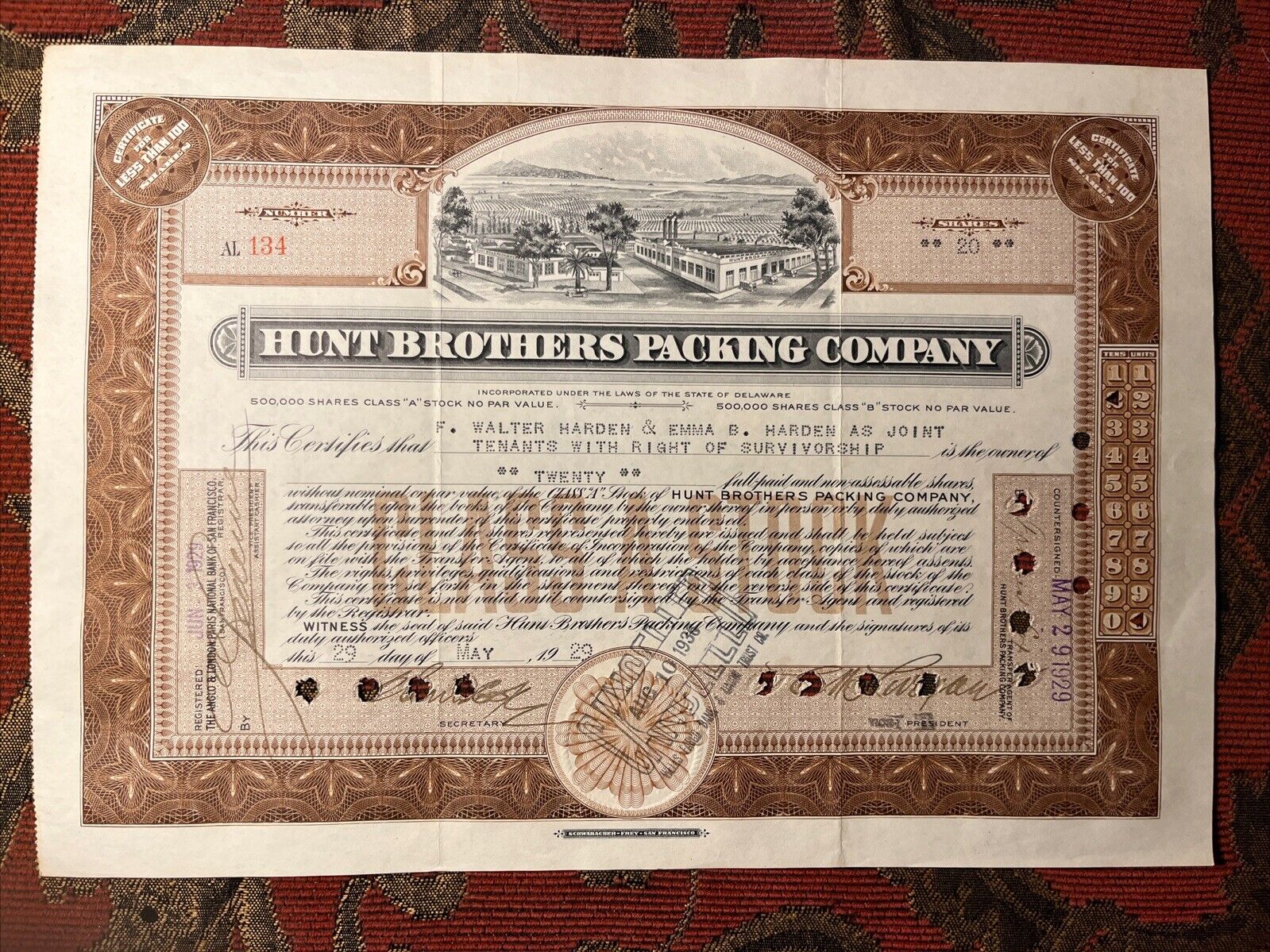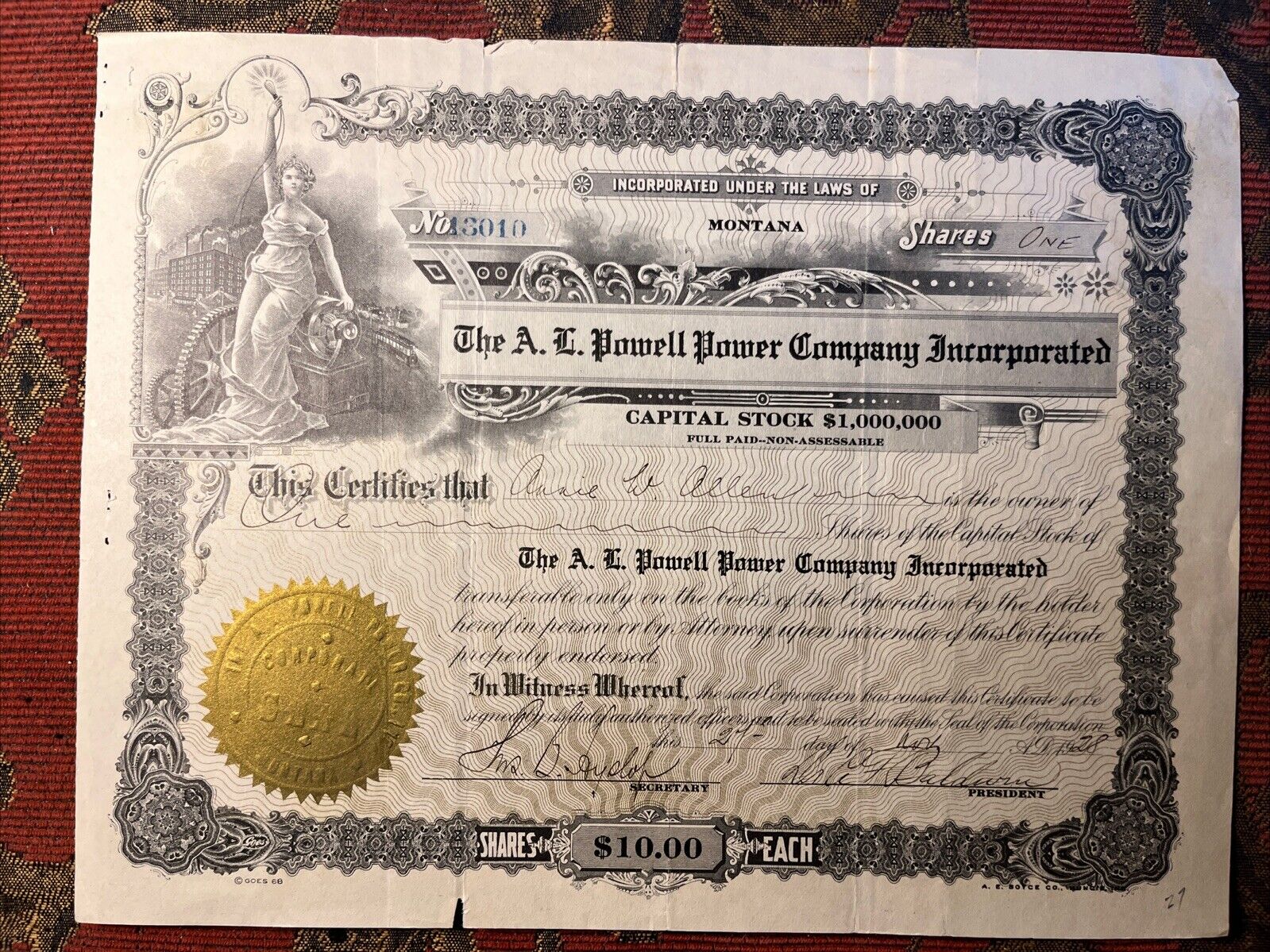-40%
B&O Railroad Vice President John King Jr. Signed 1881 Stock Certificate
$ 3.69
- Description
- Size Guide
Description
BALTIMORE AND OHIO RAILROAD VICE PRESIDENT JOHN KING JR. SIGNED 1889 STOCK CERTIFICATE AS PRESIDENT PRO TEM. KING LATER BECAME PRESIDENT OF THE ERIE RAILROAD.**CERTIFICATE IS PUNCH-HOLE CANCELLED, AFFECTING SIGNATURE OF KING**
**CERTIFICATE WILL SHIP FOLDED ALONG EXISTING FOLD LINES**
John King Jr.
(April 24, 1832 - March 17, 1897) was an American railroad executive. He was president of the Erie Railroad from 1884 to 1895.
John King Jr. was born in Baltimore, Maryland, the son of John King and Hester Stauffer. He attended private and public schools in Baltimore until the age of seventeen, at which time he became a clerk in a hardware store. A year later he engaged in the express business with John Hooey, which he abandoned after two years. King then began his career with the Baltimore and Ohio Railroad Company as a ticket agent in Camden, New Jersey. He rose to be paymaster, auditor, general freight agent, and first vice president of the company. He was active in the management of the Baltimore and Ohio Railroad for twenty-seven years, during which time he was president of the Pittsburgh and Connellsville Railroad Company and the Baltimore and Ohio and Chicago Railroad Company. King also became receiver of the Marietta and Cincinnati Railroad and the Ohio and Mississippi Railroad. In the latter capacity, he became acquainted with Benjamin Harrison, the future President of the United States. King employed Harrison, who was then an Ohio attorney, as counsel in litigation involving the railroad.
At the onset of the Great Railroad Strike of 1877, King
telegraphed West Virginia Governor Henry M. Matthews stating that the Company's trains had been stopped at Martinsburg by the strikers; that there had been a riot, and the local authorities were unable to suppress it. He asked the Governor to call out the military of the State to suppress the riot, and to enable the Company to transact its business with safety and regularity.
Governor Matthews sent in militia forces to move trains. This resulted in one militiaman getting shot by a striker while trying to operate a switch, with the militiaman returning fire. Both were wounded, and the striker died. In the end, the militia failed to get the trains moving again, as strikebreakers were unwilling to operate them. Matthews then requested federal troops, which President
Rutherford Hayes
reluctantly agreed to send.
In July of 1881, King retired from the Baltimore and Ohio Railroad Company, and spent three years in foreign travel. While there, William H. Vanderbilt sent King a telegram, offering the presidency of a railroad, which he declined. But in 1883 Vanderbilt convinced him to return to America to manage and rehabilitate the Erie Railroad. A year later, in November 1884, he was elected President. Through his remarkable executive abilities the Erie Railroad was reorganized and returned to profitability.
King’s health remained a concern and in 1890 he suffered a “mild stroke of paralysis,” causing him to go to the healthful climate of California for three months. According to
The Times,
“he was apparently restored to his normal vigor.” After Robert Garrett retired as president of the Baltimore and Ohio Railroad in 1887, King was offered the position. King, however, declined preferring to remain as president of the Erie Railroad. Due to poor health, King resigned as president of the Erie Railroad in 1895.
John King Jr. was highly visible in social circles. In 1889, King was proposed for membership to the exclusive Union Club of New York by his friend J. P. Morgan.
King
was surprisingly blackballed by the Governing Committee of the Union Club, and Morgan promptly resigned his membership and organized the Metropolitan Club of New York. As the club's first President, Morgan invited
John King
to be a charter member.
King married Mary Frances Jackson on August 20, 1867. They were the parents of three children, including Helen King, the wife of Baron Karl Von Giskra. After resigning from the Erie Railroad in 1895, King again sought to restore his health through travel in Europe, but without effect. John King Jr. died in Beaulieu, near Nice, France, on March 17, 1897.












